Department of Physics and Astronomy
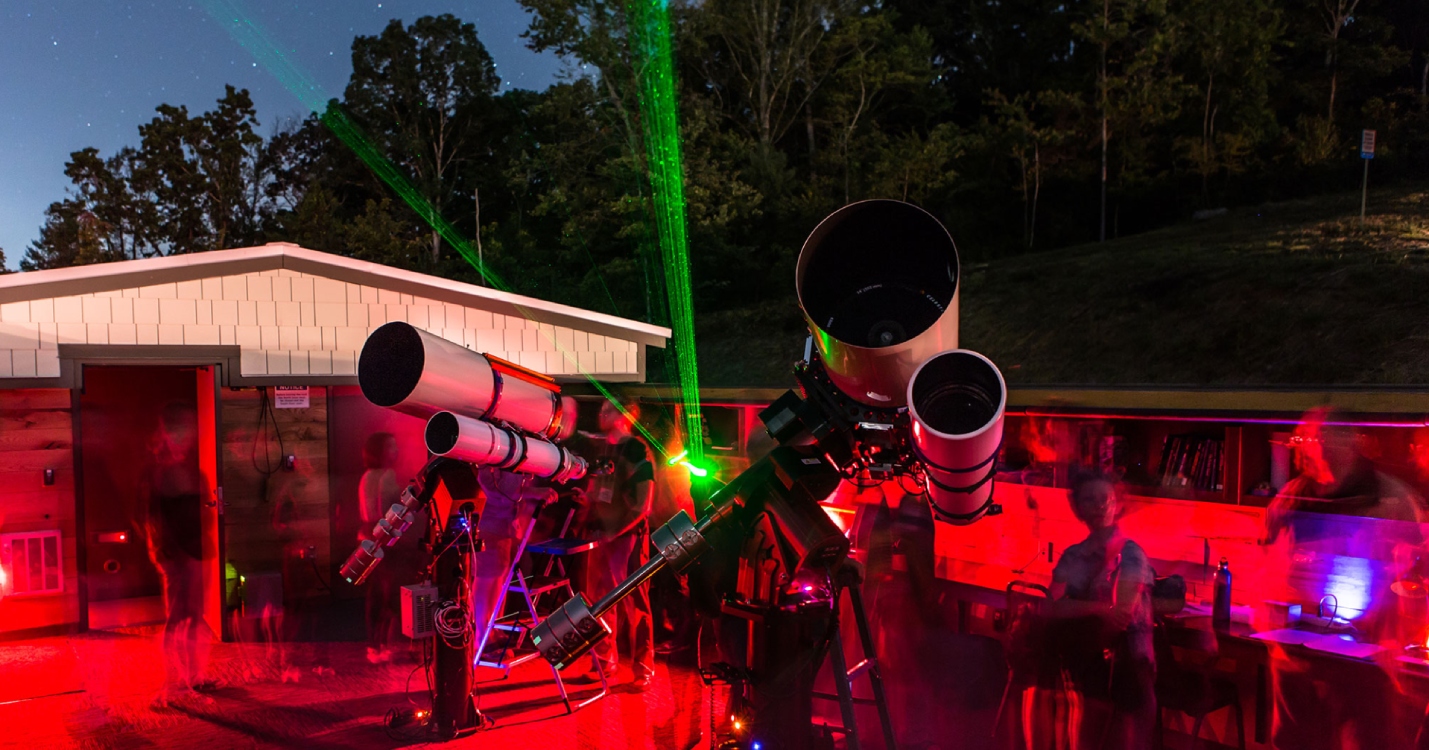
Why Study Physics at UNC Asheville?
Student success is what guides us. We use innovative, state-of-the-art teaching methods and give our students early access to exciting and meaningful research projects. With daily one-on-one guidance from full-time faculty members, our department is a great place to study what makes the world go around, from the physics of sound, lasers, and the laws of motion to electromagnetism and quantum mechanics, the theories of black holes and cosmology. Our faculty are passionate about their research in molecular and solid state physics, acoustics, galaxy evolution, exoplanets, and theoretical studies of supernova explosions. It’s easy to feel at home in our close-knit department, whether you’re hanging out in our study lounge or being a part of our award-winning national physics society chapter, the Society of Physics Students
Programs of Study
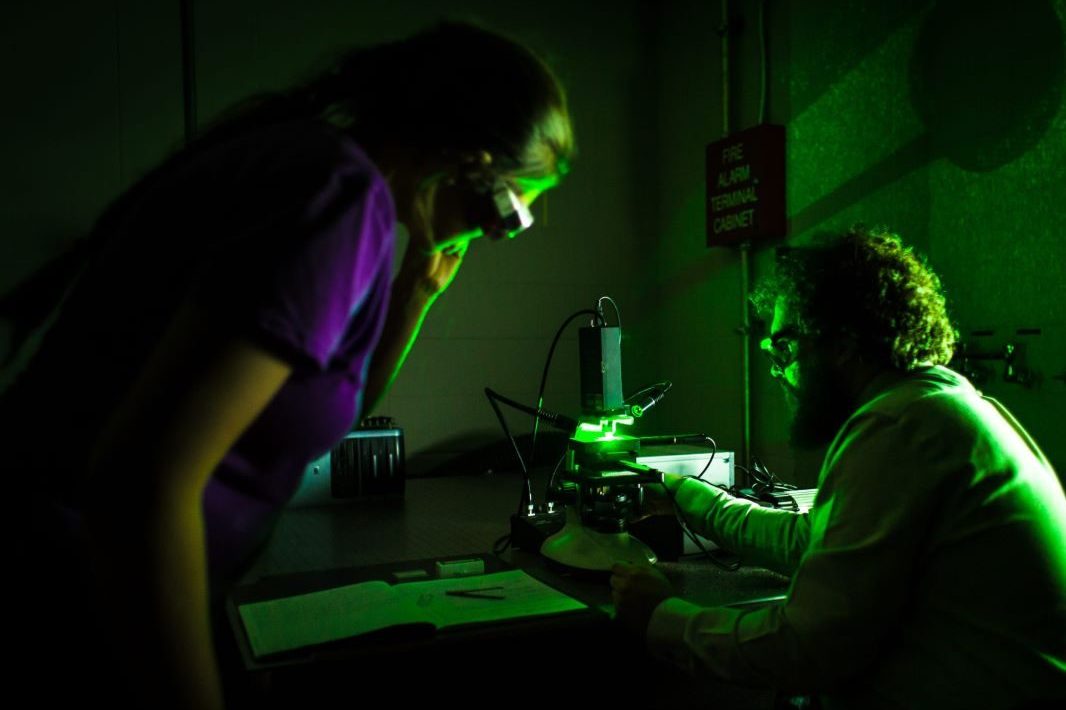
Physics
B.S. Minor Teacher Licensure
Physics majors at UNC Asheville become expert critical thinkers, developing a deep understanding of physics and acquiring fundamental knowledge in math, chemistry, computer science, astronomy, and engineering. A wide variety of minors are available to you at UNC Asheville, including in astronomy in our own department. Through our program, you will embark on a journey beyond textbooks and equations to explore the fundamental principles that govern our universe. You will apply your knowledge in laboratories and advanced experiments, test theories, and solve problems by yourself and in groups. Our graduates are prepared for graduate study or careers in science, engineering, medicine, law, business, education, and more.
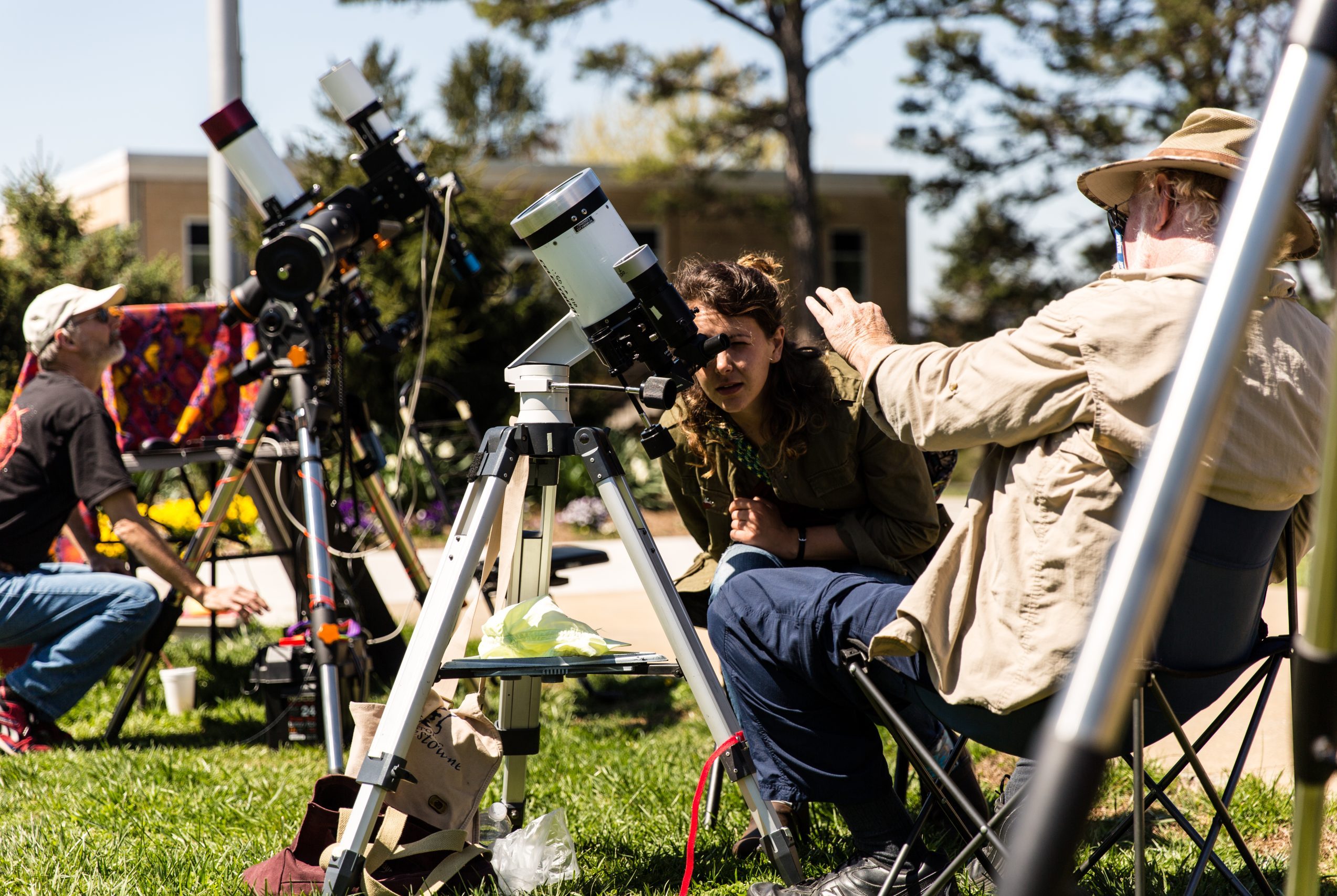
Astronomy
B.S. Minor
When you enroll in the Bachelor of Science in Astronomy degree program, you embark on a journey to explore the universe beyond our planet and uncover the fundamental phenomena that shape it. Guided by expert faculty, you engage with a rigorous curriculum that blends physics, mathematics, and computational science. At UNC Asheville, you take part in hands-on observations, research projects, and collaborations with peers, gaining the skills and insights to contribute to our understanding of the cosmos. The Astronomy minor facilitates two paths: one is designed for physical science majors and provides a rigorous preparation for graduate studies in astrophysics; the other is open to students of all majors, who are interested in a comprehensive study of astronomy from historical and applied perspectives.
Careers & Outcomes
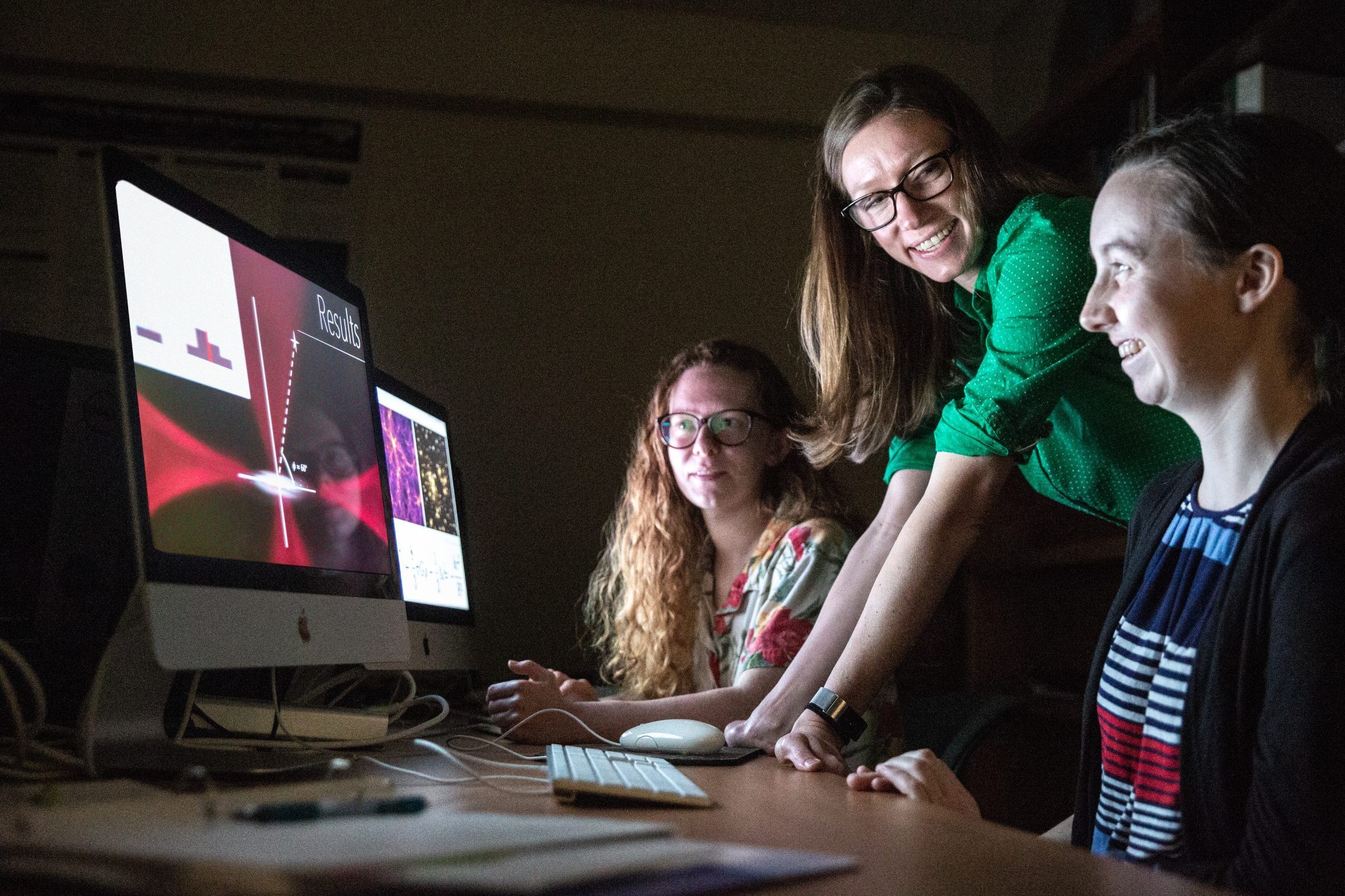
Careers & Outcomes
Graduates of UNC Asheville’s Physics and Astronomy programs develop a strong foundation in analytical thinking, quantitative reasoning, and creative problem-solving—skills that translate to a wide variety of careers. Whether modeling complex systems, analyzing vast datasets, designing experiments, or applying scientific principles to real-world challenges, our alumni are prepared for opportunities in research and development, engineering, data science, aerospace, technology, education, and beyond. Their adaptability and technical expertise also make them competitive candidates for graduate and professional programs in diverse fields.
Undergraduate Research
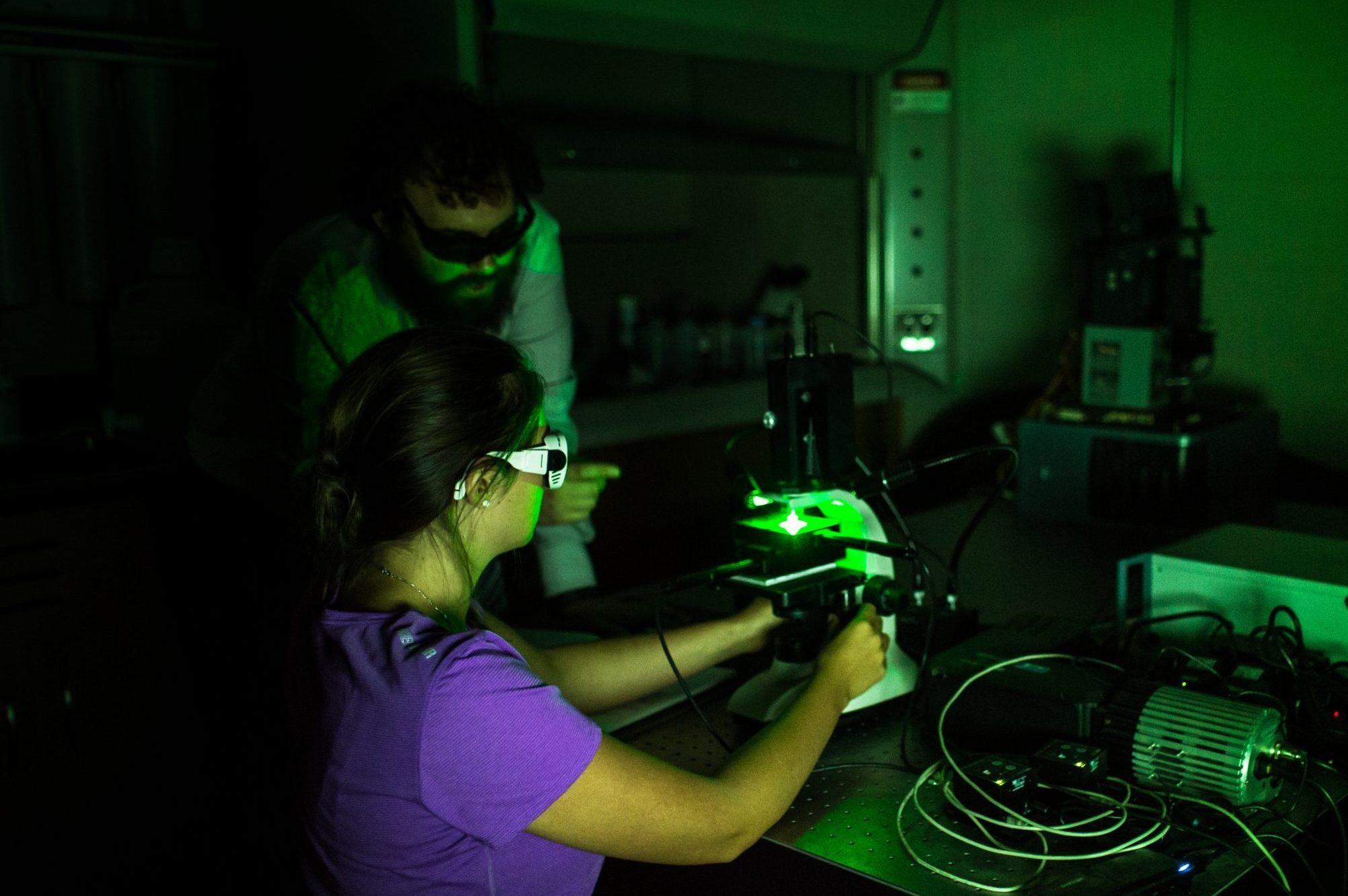
Undergraduate Research
At UNC Asheville, undergraduate research is a hands-on, faculty-mentored experience where students design and conduct original projects in the sciences, humanities, and arts. Recognized nationally for excellence, the program empowers students to explore their passions, develop critical skills, and share their work through publications, conferences, and campus symposia. In the Department of Physics and Astronomy, students have early access to exciting and meaningful research projects in fields such as quantum sensing, acoustics, exoplanet research, and galaxy evolution. Our faculty are passionate about their research projects and excited to train the next generation of scientists in our field.
Labs & Facilities

Labs & Facilities
The Department of Physics & Astronomy at UNC Asheville empowers students through hands-on exploration in cutting-edge spaces designed for discovery. Physics majors tap into modern labs featuring optics, lasers, nuclear and molecular physics, electronics, and other advanced instruments—perfect environments for testing theories, conducting experiments, and presenting findings. Students in the Astronomy program benefit from an astro-computing lab and Lookout Observatory, which houses four permanently mounted telescopes (including two 14‑inch Schmidt‑Cassegrain reflectors), specialized cameras, and a spectrograph, facilitating both astronomical research and public outreach opportunities.
Close-Knit, Welcoming Environment

Close-Knit, Welcoming Environment
Physics majors encounter the warmth of a close-knit community of learners and educators. They forge lasting connections with fellow students and faculty members, creating an environment conducive to academic success. Whether hanging out in the physics study lounge or with members of our award-winning chapter of the National Physics Honor Society, Sigma Pi Sigma, our students find it easy to feel at home.
Scholarship Opportunities

Scholarship Opportunities
Physics and Astronomy majors at UNC Asheville are eligible for numerous local and national scholarships and grants.
The best part of my studies in the Department of Physics and Astronomy at UNCA was the group of supportive friends I built through our many hours spent in the physics lounge working on homework, preparing for exams, and spending quality time together. (Years later we’re still in contact every month!) This space, and the community I found in it, made my time there very memorable and really propelled me in my academic career by preparing me for research in a highly collaborative environment.
Department of Physics & Astronomy Faculty & Staff
UNC Asheville’s Physics and Astronomy faculty are experts in fields such as astrophysics, observational astronomy, optics, condensed matter physics, nuclear physics, and computational modeling. Dedicated to student success, they provide personalized mentorship and one-on-one guidance, equipping students with the knowledge, skills, and research experience needed to excel in their academic and professional careers.
James Perkins, Ph.D.
Chair & Associate Professor of Physics
Office: 124D Rhoades/Robinson Hall
Email: jperkins@unca.edu

Britt Lundgren, Ph.D.
Associate Professor of Physics and Astronomy
Office: 117 Rhoades/Robinson Hall
Phone: 255-7130
Email: blundgre@unca.edu

Christian Kerpal, Ph.D.
Assistant Professor of Physics and Astronomy
Office: 124E Rhoades/Robinson Hall
Email: ckerpal@unca.edu




David Wake, Ph.D.
Assistant Professor and Lookout Observatory Director
Office: 107 Rhoades/Robinson Hall
Phone: 232-5036
Email: dwake@unca.edu


Don Nicholson, Ph.D.
Research Professor of Physics
Office: 122A Rhoades/Robinson Hall
Phone: 252-6922
Email: dnichol1@unca.edu

Ready for What’s Next?
When you enroll in the Bachelor of Science in Physics degree program, you embark on a journey beyond textbooks and equations and explore the fundamental principles that govern our universe. You benefit from expert faculty mentorship and friendly peers as you delve into our rigorous, customizable curriculum. At UNC Asheville, you engage in groundbreaking projects, collaborate with peers, and contribute to the advancement of scientific knowledge.